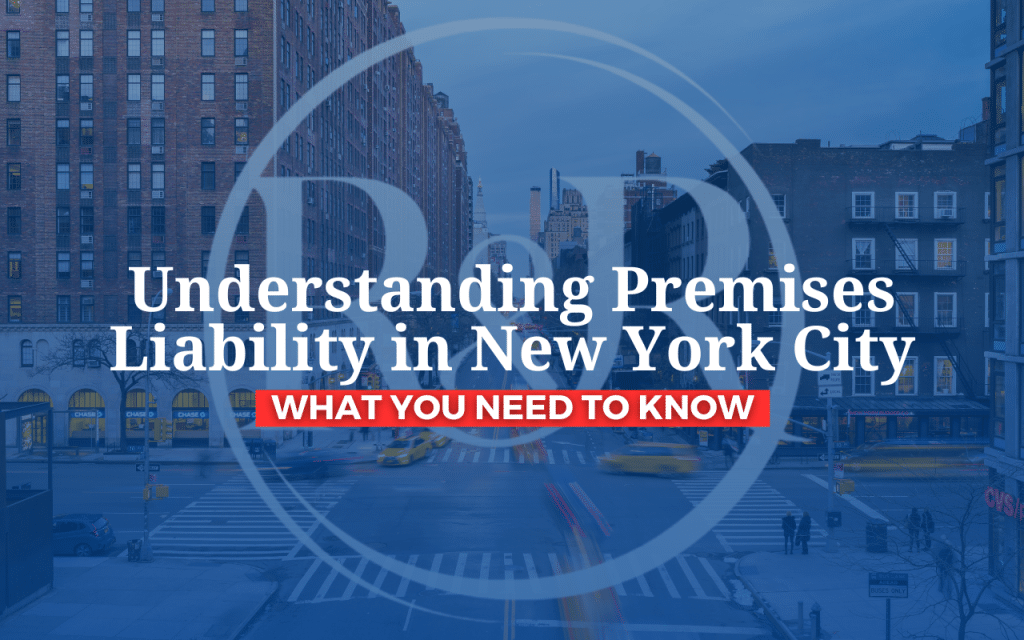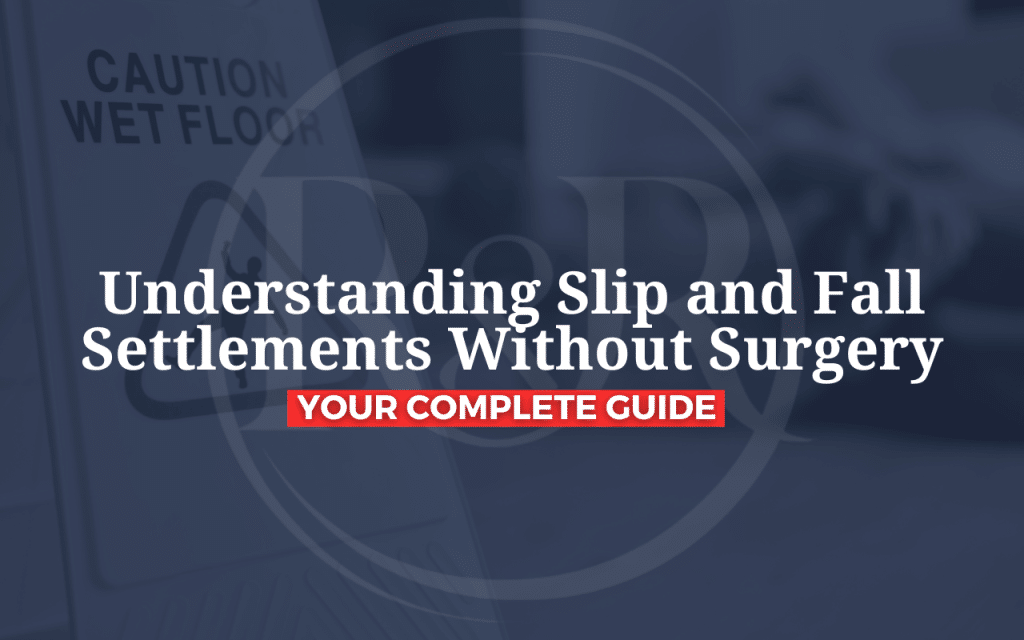Navigating the complex world of legal claims can be daunting, especially when it comes to understanding the differences between workers’ compensation and personal injury claims. At Rosenberg & Rodriguez, we specialize in helping individuals in New York understand their rights and options. In this blog, we’ll break down the key distinctions between workers’ compensation and personal injury claims in New York, providing you with the knowledge you need to make informed decisions.
Understanding Workers’ Compensation Claims
Workers’ compensation is a state-mandated insurance program that provides benefits to employees who suffer work-related injuries or illnesses. In New York, almost all employers are required to carry workers’ compensation insurance, ensuring that their employees are protected in case of workplace accidents.
Key Features of Workers’ Compensation
- No-Fault System: One of the most significant aspects of workers’ compensation is that it operates on a no-fault system. This means that employees do not need to prove that their employer was negligent or at fault for their injury. If the injury occurred at work or was related to the job, the employee is generally eligible for benefits.
- Limited Benefits: Workers’ compensation benefits are designed to cover medical expenses, a portion of lost wages, and vocational rehabilitation. However, it does not provide compensation for pain and suffering or punitive damages, which can be significant in personal injury cases.
- Exclusive Remedy: In most cases, workers’ compensation is the exclusive remedy for work-related injuries, meaning that employees cannot sue their employer for additional damages through a personal injury lawsuit. There are some exceptions, such as cases involving intentional harm or gross negligence, but these are rare.
Types of Benefits Available
- Medical Benefits: Coverage for medical treatments, surgeries, medications, and other necessary healthcare services related to the work injury.
- Wage Replacement: Temporary disability benefits to compensate for a portion of lost wages while the employee is unable to work.
- Permanent Disability: Benefits for employees who suffer permanent impairments that affect their ability to work.
- Vocational Rehabilitation: Support for retraining or education to help injured workers return to suitable employment.
Understanding Personal Injury Claims
Personal injury claims, on the other hand, arise from injuries caused by the negligence or wrongful actions of another party. Unlike workers’ compensation, personal injury claims require the injured party to prove that the defendant was at fault and that their negligence directly caused the injury.
Key Features of Personal Injury Claims
- Fault-Based System: Personal injury claims are based on proving fault. The injured party must demonstrate that the defendant owed a duty of care, breached that duty, and caused the injury as a result. This often involves gathering evidence, witness testimony, and expert opinions.
- Broader Range of Damages: Personal injury claims can result in a broader range of damages compared to workers’ compensation. In addition to medical expenses and lost wages, claimants can seek compensation for pain and suffering, emotional distress, loss of consortium, and punitive damages.
- Legal Process: Personal injury claims typically involve filing a lawsuit, negotiating with insurance companies, and potentially going to trial. This process can be lengthy and complex, requiring the expertise of experienced personal injury attorneys like those at Rosenberg & Rodriguez.
Types of Personal Injury Cases
- Car Accidents: Claims arising from motor vehicle collisions caused by negligent drivers.
- Slip and Fall: Cases involving injuries sustained on someone else’s property due to hazardous conditions.
- Medical Malpractice: Claims against healthcare providers for injuries caused by substandard medical care.
- Product Liability: Cases involving injuries caused by defective or dangerous products.
- Assault and Battery: Claims resulting from intentional harm inflicted by another person.
Workers’ Comp vs. Personal Injury: Key Differences
Understanding the critical differences between workers’ compensation and personal injury claims is essential for determining the appropriate legal avenue for your situation.
Eligibility and Coverage
- Workers’ Compensation: Covers only work-related injuries and illnesses. It does not matter who was at fault for the injury.
- Personal Injury: Covers a wide range of injuries caused by someone else’s negligence, regardless of whether the injury occurred at work or elsewhere.
Proof of Fault
- Workers’ Compensation: No need to prove fault. The employee only needs to show that the injury occurred during the course of employment.
- Personal Injury: Requires proof of fault. The injured party must demonstrate that the defendant’s negligence directly caused the injury.
Types of Damages
- Workers’ Compensation: Limited to medical expenses, lost wages, and vocational rehabilitation. Does not cover pain and suffering or punitive damages.
- Personal Injury: Broader range of damages, including medical expenses, lost wages, pain and suffering, emotional distress, and punitive damages.
Legal Process
- Workers’ Compensation: Typically involves filing a claim with the employer’s workers’ compensation insurance provider. Disputes may be resolved through administrative hearings rather than court trials.
- Personal Injury: Involves filing a lawsuit, negotiating with insurance companies, and potentially going to trial. The process can be more adversarial and time-consuming.
When to Consult an Injury Attorney
Determining whether to pursue a workers’ compensation or personal injury claim can be challenging, especially when the circumstances of the injury are unclear. Consulting with experienced attorneys at Rosenberg & Rodriguez can help you navigate the complexities of your case and ensure that you receive the compensation you deserve.
Situations Requiring Legal Expertise
- Unclear Fault: If there is ambiguity about who is at fault for your injury, an attorney can help gather evidence and build a strong case.
- Denial of Benefits: If your workers’ compensation claim is denied or if you believe you are not receiving the full benefits you are entitled to, legal representation can help you appeal the decision.
- Severe Injuries: For severe injuries with long-term consequences, it is essential to ensure that all potential sources of compensation are explored, including both workers’ compensation and personal injury claims.
- Employer Retaliation: If you face retaliation from your employer for filing a workers’ compensation claim, an attorney can protect your rights and take appropriate legal action.
Injured? Contact Rosenberg & Rodriguez Now
At Rosenberg & Rodriguez, we understand the challenges that injured individuals face, whether at work or due to someone else’s negligence. Our experienced attorneys are dedicated to helping you understand your rights and options, guiding you through the legal process, and ensuring you receive the compensation you deserve.
If you have been injured and are unsure whether to pursue a workers’ compensation or personal injury claim, contact Rosenberg & Rodriguez for a free consultation. Our team is here to provide the expertise and support you need to navigate your legal journey successfully. For more information and to schedule your consultation, visit our website or call us today.




